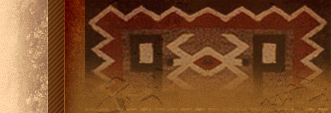A story is like a journey, having a beginning, middle, and end. It goes somewhere. This similarity of form is no coincidence. As N. Scott Momaday has said in "The Way to Rainy Mountain," the most deeply mythic stories are about epic journeys "made with the whole memory, that experience of the mind which is legendary as well as historical, personal as well as cultural." Such a journey goes back to the beginning and retraces the route by which we got from Then to Now. Only in this way can we learn who we are and which of the paths before us is our own. In choosing our new path, we choose the landscape we inhabit, and since it is not the destination but the journey itself that matters, that landscape is crucial. It holds our whole lives in it.
In Modern Western society, the term "story" has picked up a negative meaning; it's not uncommon to hear someone say, "Oh, that's just a story" to dismiss a thing as not only untrue, but without significance. Yet story is (perhaps unexpectedly) present in Western science. Geologists have long said, for example, that they "read the story of the Earth written in the rocks." Vertebrate paleontologist and Natural History columnist, the late Stephen Jay Gould, President of the American Association for the Advancement of Science for 1999-2000, writes that instead of using the Scientific Method to search for answers, he reconstructs the "unique and complex" history of life on earth. In other words, he is both a story-listener and a storyteller. Story is also present in contemporary humanities, including theology, which often use the term "narrative" to refer to story in an attempt to avoid the pejorative meaning of the term. But as Madelaine L'Engle pointed out in "Walking on Water: Reflections on Faith and Art," story is powerful rather than pejorative: "Jesus was not a theologian; he was God who told stories," she says.
The power of story has been acknowledged in other cultures throughout time, where it is well known that there are different types of stories that serve different purposes. Stories can be unique and personal or epic and cultural, and the most powerful stories are both at the same time. They are also both physical and spiritual at the same time. Arthur Frank writes in "The Wounded Storyteller" about this type of powerful story. "As wounded, people may be cared for, but as storytellers, they care for others. The ill, and all those who suffer, can also be healers. Their injuries become the source of all the potency of their stories. Through their stories, the ill create empathic bonds between themselves and their listeners. These bonds expand as the stories are retold. Those who listen need then tell theirs, and the circle of shared experience widens. Because stories can heal, the wounded healer and wounded storyteller are not separate, but are different aspects of the same figure. . . Illness is the occasion of a journey that becomes a quest. What is quested for may never be wholly clear, but the quest is defined by the ill person's belief that something is to be gained through the experience."
Frank refers to another dimension of story by using the term "quest." Joseph Campbell has referred to epic stories that are found across cultures as myths, and the Quest Story is one of these. Another is the "Hero Myth" commonly found in adventure films. These stories have power because we all find ourselves at one time or another living out the framework of such a story: called to enter a Quest Story by illness, for example, or a Hero Story by the actions of an unscrupulous boss. These kinds of mythic stories tell us how we might survive such events and even be triumphant. This means that the stories told to us in film and television form a template for our personal living in ways we don't always realize. Further, they reflect and re-formulate our culture's ideals and behavioral templates. This is why other cultures have always seen story as so awesomely powerful. It's also at least one reason that the entertainment industry is the single largest industry in America.
Additional Reading:
Walking on Water: Reflections on Faith and Art. Madelaine L'Engle. Harold Shaw Publishers, Wheaton IL. 1980.
The Wounded Storyteller: Body, Illness, and Ethics. Arthur Frank. University of Chicago Press, Chicago. 1995.
The Panda's Thumb: More Reflections in Natural History. Stephen Jay Gould. W.W. Norton & Company, New York. 1980.
The Way to Rainy Mountain. N. Scott Momaday. University of New Mexico Press, Albuquerque. 1969.
|

